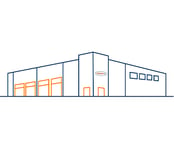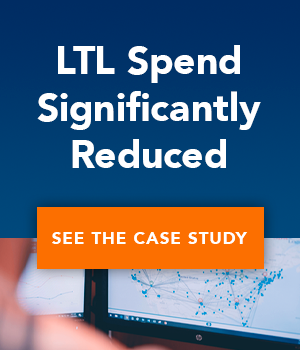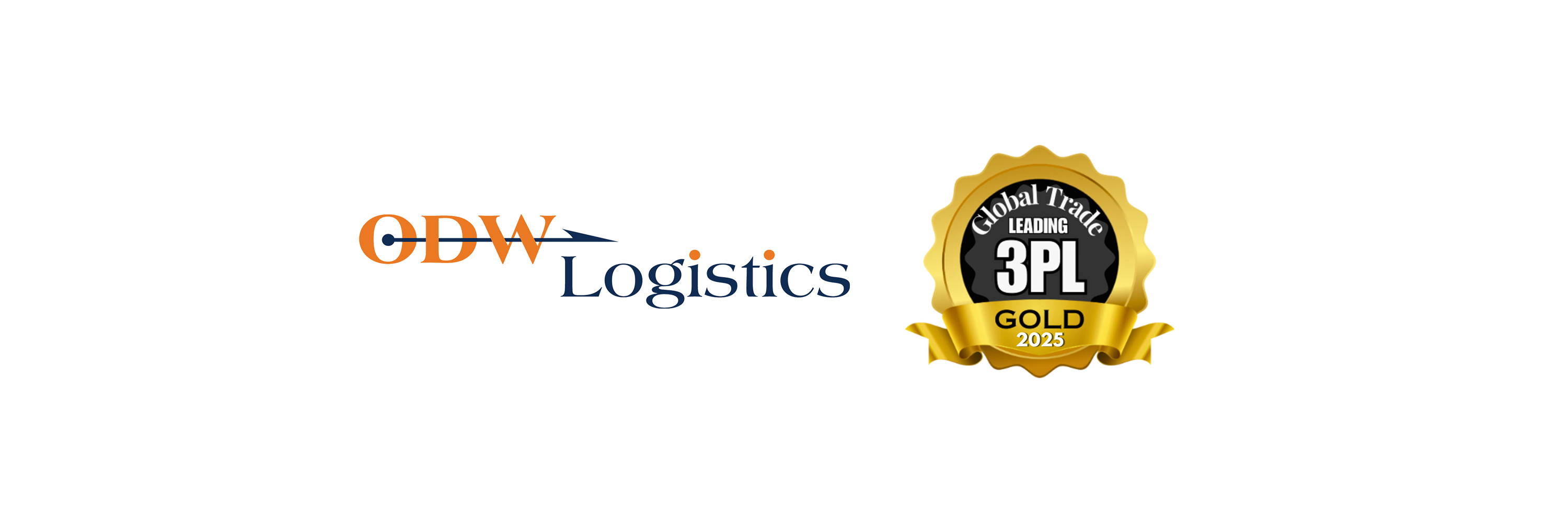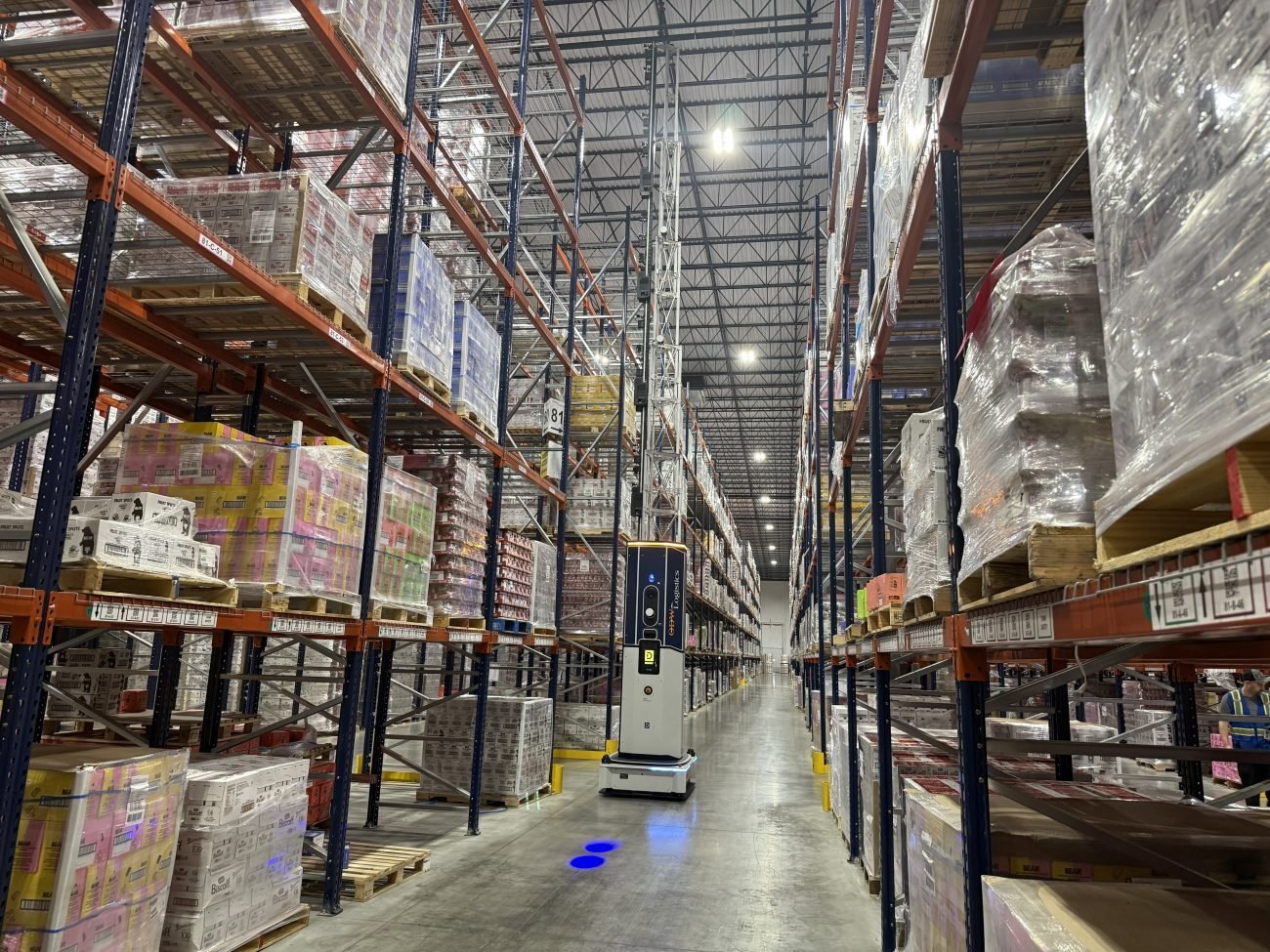
Almost 20 years before software as a service (SaaS) became a thing, the revolutionary “as a service” aaS model was already a successful proof of concept.
Where?
Logistics. In the form of the third-party logistics (3PL) model. With the launch of the passing of the Motor Carrier Act of 1980, 3PLs began providing logistics as a service. Unencumbered by the need to own carrier assets, they’ve been able to do amazing things for food and beverage shippers. Nowadays there are aaS models for everything from data and robots to office space and artificial intelligence.
The 3PL model was a leading-edge concept back then and it’s still the choice of food and beverage shippers on the forefront.
Today’s model of 3PL is an amazing resource for shippers, whether they’re operating completely outsourced supply chains, or using the 3PL model to augment their in-house transportation or logistics operations.
3PLs’ services are the ideal answer for food and beverage manufacturers’ needs in providing safe and reliable distribution. Amazingly agile and cost effective, 3PLs can enable shippers to capitalize on shared warehouse space and the latest technology without capital. Those are just the beginning of the services—and advantages—of 3PLs.
3PLs provide a universe of aaS in their role providing logistics as a service. Trucking as a service, warehousing as a service, fulfillment as a service—the list goes on and on.
Here are ten key benefits provided by 3PLs from where we at ODW logistics are sitting. If you’re a food or beverage manufacturer and you’re not leveraging them already, there’s no better time than now.
1. Omnichannel Chops – Let a 3PL Get You up to Speed
These days, food and beverage producers are managing a dizzying array of different channels. B2B and B2C fulfillment needs to be managed alongside each other and brand experience needs to be consistent everywhere your company sells.
If you don’t have experience in the omnichannel world, you need a provider who does. And even if you do, a 3PL that handles omnichannel fulfillment for many clients provides invaluable insights. The landscape is in constant flux. The experience they have helping other clients with handling direct to consumer, Amazon Fulfillment and FBA is yours. If they know how to manage it, you do too—with no learning curve.
Believe it or not, there are still mature organizations who have not yet entered the ecommerce world. An experienced 3PL knows what these operations need to succeed in terms of network, inventory management and order fulfillment. A good one can ensure a smooth and expeditious transition into new channels.
2. Outsourced Value-Added Services Add to the Bottom Line
Value-added services (VAS) are bigger than ever. Whether the services are provided for retail clients or ecommerce customers, they can change, they can be sporadic and they can be expensive to perform in-house by shippers. The reality is you don't want to have to ship your goods out every time you need kits, multi-packs or POP displays created. The transportation and secondary handling cost you.
VAS are custom and unique. Sometimes VAS take a different level of labor in order to manage them. The work is often cyclical, temporary or unexpected which makes it hard to staff for in-house. A 3PL that already has your product in its warehouse and can perform the VAS is an ideal option. They have space, labor and expertise.
Display-ready pallets (DRPs) are a popular example. Supermarkets and big box retailers rely on these pre-built displays to save their people time and effort. They're called “display-ready” because you can pull them off the truck and they’re ready to be moved into the store aisle and displayed. Stores just tear off the shrink wrap and put them in the location for shoppers to pick from them.
In ecommerce, multi-packing is a value-added service that is providing food manufacturers with an entrée to online sales. Lower-priced food items can be packaged for bulk in order to increase manufacturers’ profit margins. An example is cake mix. Selling one box online probably wouldn’t be worth it; but selling five boxes in a multipack can make it worthwhile.
3. 3PLs Provide the Forensic Advantage in Auditing Retailer Chargebacks
With retailers’ routing guides getting stricter and stricter, manufacturers are being overwhelmed by chargebacks. 3PLs are in prime position to mitigate the liability of those chargebacks by helping food and beverage sellers negotiate with retailers to eliminate, reduce or lessen the effects of falling out of compliance.
A 3PL with its experience delivering to multiple retailers for multiple food and beverage sellers can help sellers navigate. ODW, for example, has partners send over files for chargebacks and then provides responses and evidence to dispute them.
Auditing and disputing erroneous claims are time-consuming tasks. But not taking the time to do them can unnecessarily cost shippers 10s or 100s of thousands of dollars a year.
To prepare for possible claims, ODW will often take pictures, store files, and do additional documentation on manifests. In some cases, ODW will do quality checklists on the outbound side. When a shipment is dispatched from ODW’s facility, the driver checks in and out with a guard who photographs their license plate and their face. Additionally, the driver’s check-in point when they arrive to a retailer’s facility is recorded just in case a retailer erroneously claims the shipment was late.
4. 3PLs Help Manufacturers Satisfy their Appetite for Total Visibility
Food manufacturers—especially those who are moving into ecommerce—need to up their game in network visibility to meet today’s two- or three-day service commitments. That means integrating their business intelligence system with leading edge transportation-, warehouse- and inventory-management systems.
3PLs can be big investors in technology. The ability to piggyback on their systems is a key benefit of partnering with a 3PL. They make the capital investment and handle the upgrades, and you receive leading-edge visibility.
The second big visibility gap in the food world is the portion of the supply chain when product is being produced by co-manufacturers. It is not uncommon for a brand to produce 1,200 SKUs at 50 different co-manufacturers.
It can be messy for food sellers to try to determine how much they have in inventory and how much they have that's set to deliver. With a lot of co-manufacturers, technology is lacking. Often stuff is be produced and nobody will even know it. Tracking is scarce and there’s no detailed information until shipments arrives at the distribution center.
A 3PL’s warehouse management system (WMS) and transportation management system (TMS) can help with that. When food and beverage brands use the 3PL’s transportation team to pick up at a manufacturer and deliver to their own distribution centers, they can gain from two to four days’ worth of visibility. The additional visibility enables system efficiencies and savings from the ability to make proactive transportation and warehousing decisions.
5. A 3PL Can Be Your War Room for the Freight Markets
The transportation market has changed dramatically in recent years. As a result, manufacturers in every industry—including food and beverage—have moved from negotiating annual or bi-annual carrier contracts and now do almost weekly RFPs. But putting all their business out to bid every week to a carrier network has downsides.
If a manufacturer’s in-house staff lacks the sophistication to know the right time is to go and test the market and doesn’t understand the capacity issues and constraints that exist, shippers can miss the mark by a long shot.
Additionally, it’s easier than ever for shippers to leverage the spot market. But as tempting as it seems, the time and resources required often negate any great rates garnered.
What it means is that in today’s freight market, shippers need to have a dedicated in-house group of experts that understands how to read data and what engines to pull data from. Or they need to work with somebody like a 3PL that already has an expert staff and procurement team in place.
3PLs were built for the challenge. They have the resources most shippers lack to understand today’s economic volatility and stay ahead of trends in the marketplace. They do it every day for multiple clients.
6. 3PLs Help Food and Beverage Manufacturers Flex and Scale Quicker
In today’s fast-paced omnichannel world, food and beverage manufacturers don’t always have the resources to understand how to monitor and manage sales. 3PLs are adept at helping manufacturers flex to meet forecasts and changes. When an influencer says something about something and all of a sudden there are 2,000 orders that exist overnight out there, you have somebody that can flex with you to make things happen.
Growth can come quickly and expensively. Working with a 3PL can be a lot more attractive than investing in a new warehouse.
3PLs Help Manufacturers Manage and Maintain Growth
- 3PLs bring expertise and services most food and beverage makers don’t have in-house. If a shipper wants consumers in a specific marketplace, but for them to effectively penetrate that marketplace, they would have to redesign their distribution nodes, a 3PL’s network is appealing. A 3PL could come in and perform a network study and network analysis that helps a shipper understand the impact of opening a location on their own versus working with a company like ODW.
- A 3PL can help determine the cost implications of network changes. They could also help determine what the impact would be on a manufacturer’s supply chain from a KPI standpoint of on time delivery, performance, transit days, cost per pound or cost per unit.
- A 3PL can also help a manufacturer understand and identify not only the optimal locations for distribution centers, but also what SKUs and quantities should be stocked there.
7. You Can Make Today’s Labor Challenges a 3PL’s Problem
Businesses of all sizes must contend with the realities of today’s tight labor market. That includes paying premium wages to entice good workers. It also includes the cost of going out and recruiting and training—as well as the risk of losing that talent.
By working with a 3PL, you can leverage shared labor that is a continuous presence. You also have a bench of resources behind any team member you lose. You can effectively fill seats without skipping a beat.
All this comes without you having to shoulder human resources responsibilities. In other words when you work with a 3PL like ODW, you inherently are getting a full staff of experts without having to extend your liabilities from an insurance, training or PTO standpoint.
8. 3PLs Are Masters at Consolidating Loads for Customers
Food and beverage manufacturers who rely on less-than-truckload (LTL) shipping pay a price. Freight consolidation is the answer. When food shippers don't have the volume to consolidate loads themselves, it makes sense for them to seek options for sharing transportation with other like-brands. By consolidating their freight with other like-freight, they can build more efficient loads to the same destinations.
Partnering with a 3PL with multiple clients who all ship to the same destination provides shippers potential transportation discounts.
Through a 3PL’s multi-client consolidation (MCC) program, shippers who don’t have enough volume to build efficient loads to the distributors themselves can build truckloads with other like-brands.
In addition to transportation savings for shippers, ODW often sees on-time-in-full compliance as a group improve in MCC programs.
9. 3PLs Give Shippers Access to Leveraged Parcel Programs
In ecommerce, it’s a parcel world, and leveraged parcel programs rule. Shippers can go negotiate one, but their volumes are often so low—especially in the early ecomm stages—that the rates they receive are nowhere near those the big brands receive.
It’s better to leverage a 3PL’s bulk contracts. In ecommerce, shipping is a significant portion of fulfillment costs. It’s crucial to get that right.
10. 3PLs Are an Incomparable Resource for Success-as-a-Service
More than anything the aaS model puts indispensable resources within reach for companies regardless of their size.
3PLs do the same thing. They make leading-edge services and performance accessible and achievable at every stage of the food and beverage supply chain.
But success as a service doesn’t all rely on 3PLs. Food and Beverage manufacturers need to know how to partner with a 3PL to unlock their true power. Learn relationship tips and processes for success in our next blog.
ODW Logistics
Since 1971, we’ve been providing warehousing, distribution, and transportation solutions for hundreds of brands. We operate as an extension of your business to control costs throughout your supply chain that deliver you a competitive advantage over your competition.RECENT POSTS
Introduction: The Evolving Landscape of E-commerce Fulfillment In the fast-paced world of online retail, customer expect...
Dec. 18, 2025 09:26 AM
ODW Logistics has been named a Top 50 Third-Party Logistics (3PL) Provider by Global Trade magazine and recognized in th...
Dec. 17, 2025 09:33 AM
December 3, 2025
Dec. 04, 2025 09:10 AM









.jpg)

